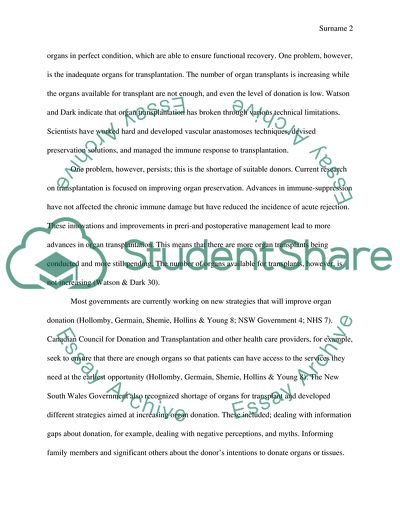Cite this document
(Organ Transplants Literature review Example | Topics and Well Written Essays - 2000 words, n.d.)
Organ Transplants Literature review Example | Topics and Well Written Essays - 2000 words. https://studentshare.org/health-sciences-medicine/1821042-literature-review-and-analysis-on-organ-transplants
Organ Transplants Literature review Example | Topics and Well Written Essays - 2000 words. https://studentshare.org/health-sciences-medicine/1821042-literature-review-and-analysis-on-organ-transplants
(Organ Transplants Literature Review Example | Topics and Well Written Essays - 2000 Words)
Organ Transplants Literature Review Example | Topics and Well Written Essays - 2000 Words. https://studentshare.org/health-sciences-medicine/1821042-literature-review-and-analysis-on-organ-transplants.
Organ Transplants Literature Review Example | Topics and Well Written Essays - 2000 Words. https://studentshare.org/health-sciences-medicine/1821042-literature-review-and-analysis-on-organ-transplants.
“Organ Transplants Literature Review Example | Topics and Well Written Essays - 2000 Words”. https://studentshare.org/health-sciences-medicine/1821042-literature-review-and-analysis-on-organ-transplants.


